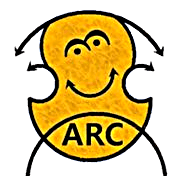Ricochet Control

Ricochet is most commonly performed Down-Bow.
- Bow Elevation – height of the bow above the strings.
- Down-Bow Degree — amount of horizontal bow motion.
- Bow Control — application of solid bow-hand tasks.
Bounce-Speed is controlled by:
Mastering ricochet requires your own experimentation. In order to acquire the correct feel of the bow in relationship to the strings resistance, trial and error is very beneficial. With practice, you can learn how to control the speed of ricochet.
The more ricochet notes you need to perform in a row, the more horizontal bow motion you need to apply.
Higher tension strings provide more “bow kick-back,” causing the bow to spring further from the string.
Always keep your right shoulder loose and relaxed, allowing your bow-hand to direct ricochet.
Higher tension strings provide more “bow kick-back,” causing the bow to spring further from the string.
Always keep your right shoulder loose and relaxed, allowing your bow-hand to direct ricochet.
Here are a few helpful tips:

Listen to Exercise

Introducing the Bow Parts of the Bow The Stick Horse-Hair The Tip The Frog The Winding How the Bow Works
Rosin Preparing to Hold the Bow Stick Training Exercises Bowing Terminology Down-Bow Up-Bow
Bow-Hand Set-Up Finger Tasks and Functions The Thumb Meet ARC Finger Segments The Index-Finger
Bow-Hand Pronation The Center-Finger and Ring-Finger Bow-Hand Fulcrum Ring-Finger Propulsion Bass Bows
Pinky Bow-Tasks ‘Casting’ the Bow-Hand Bow-Wrist Tasks Rotational Inertia Arco Clay Smile Exercise Meet ANGLE
The Bow-Arm Box The Shoulder Arc Bow Contact-Point String Lanes Bow-Segment Mastery Bowing Exercises
Finding the Bow Contact-Point “Painting With Sound” Bowing Exercises Menu Bow Taps Bowing Traditions
Perform Down-Bows Perform Up-Bows The Art of the Bow-Change Articulations Staccato Legato
Mastery Checkpoint One Building Bow Control Bow Speed and Bow-Arm Motion Bow Planning and Distribution
Slow Moving Bow Strokes Individual Bow Segments Traveling the Bow Bowing Dynamics Mastery Checkpoint Two
Advanced Techniques Slurs and Articulations Slur Training Locating the Bow’s Balance Point Ricochet and Spiccato
Exploring Ricochet Ricochet Control Spiccato Training Spiccato Control Spiccato Brush Strokes
Multiple String Crossings Virtuosic Bow Strokes Arpeggio Bowing “Flying” Staccato Mastery Checkpoint Three
SCROLL’s List of Bow Strokes
Rosin Preparing to Hold the Bow Stick Training Exercises Bowing Terminology Down-Bow Up-Bow
Bow-Hand Set-Up Finger Tasks and Functions The Thumb Meet ARC Finger Segments The Index-Finger
Bow-Hand Pronation The Center-Finger and Ring-Finger Bow-Hand Fulcrum Ring-Finger Propulsion Bass Bows
Pinky Bow-Tasks ‘Casting’ the Bow-Hand Bow-Wrist Tasks Rotational Inertia Arco Clay Smile Exercise Meet ANGLE
The Bow-Arm Box The Shoulder Arc Bow Contact-Point String Lanes Bow-Segment Mastery Bowing Exercises
Finding the Bow Contact-Point “Painting With Sound” Bowing Exercises Menu Bow Taps Bowing Traditions
Perform Down-Bows Perform Up-Bows The Art of the Bow-Change Articulations Staccato Legato
Mastery Checkpoint One Building Bow Control Bow Speed and Bow-Arm Motion Bow Planning and Distribution
Slow Moving Bow Strokes Individual Bow Segments Traveling the Bow Bowing Dynamics Mastery Checkpoint Two
Advanced Techniques Slurs and Articulations Slur Training Locating the Bow’s Balance Point Ricochet and Spiccato
Exploring Ricochet Ricochet Control Spiccato Training Spiccato Control Spiccato Brush Strokes
Multiple String Crossings Virtuosic Bow Strokes Arpeggio Bowing “Flying” Staccato Mastery Checkpoint Three
SCROLL’s List of Bow Strokes



